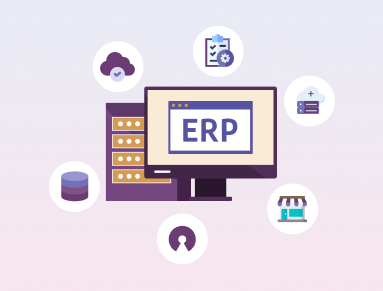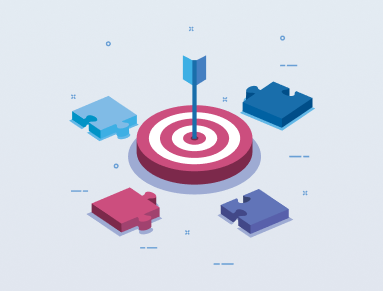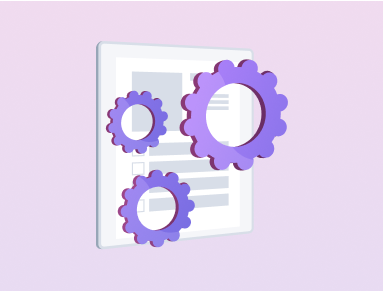What is ERP?
Types | Features
| Benefits | Challenges

What is ERP?
ERP (Enterprise Resource Planning) is a type of business software that helps organizations manage their core business processes, such as finance, accounting, procurement, inventory management, and human resources. It provides a centralized system that integrates various departments and functions across the organization, enabling better visibility, efficiency, and decision-making.
Types of ERP:
- On-Premises ERP: On-premises ERP systems are installed on a company's own servers and managed by their IT department. These systems offer the highest level of control and security but can be expensive to implement and maintain.
- Cloud ERP: Cloud ERP systems are hosted on a vendor's server and accessed via the internet. These systems offer greater flexibility, scalability, and lower upfront costs than on-premises ERP systems.
- Open-Source ERP: Open-source ERP systems are free to use and can be customized to meet specific business needs. These systems can be hosted on-premises or in the cloud, and require a significant amount of technical expertise to implement and maintain.
- Industry-Specific ERP: Industry-specific ERP systems are designed to meet the unique needs of specific industries, such as healthcare, manufacturing, or retail. These systems offer specialized functionality and features that are tailored to the needs of the industry.
- Small Business ERP: Small business ERP systems are designed for smaller organizations that have fewer resources and less complex business processes. These systems offer a simplified version of ERP software, with fewer features and lower costs.
- Hybrid ERP: Hybrid ERP systems combine on-premises and cloud-based ERP systems to provide greater flexibility and scalability. These systems offer the benefits of both on-premises and cloud-based ERP systems and can be customized to meet specific business needs.
Features of ERP:
- Centralized System: ERP systems provide a centralized system that integrates various departments and functions across the organization.
- Automation: ERP systems automate many business processes, reducing the need for manual tasks.
- Real-time Data and Analytics: ERP systems provide real-time data and analytics, giving organizations better visibility into their operations.
- Customization: ERP systems can be highly customizable, enabling organizations to tailor the system to their specific needs.
- Scalability: ERP systems can scale to meet the needs of growing organizations.
Benefits of ERP:
- Improved Efficiency: ERP systems automate many business processes, reducing the need for manual tasks and improving efficiency.
- Better Visibility: ERP systems provide real-time data and analytics, giving organizations better visibility into their operations.
- Increased Collaboration: ERP systems provide a centralized system that integrates various departments and functions, enabling better collaboration and communication.
- Cost Savings: ERP systems can reduce costs associated with manual tasks, inventory management, and procurement.
- Improved Customer Service: ERP systems provide better visibility into customer information, enabling organizations to provide better customer service.
Challenges of ERP:
- Cost: ERP implementation can be expensive, requiring significant investment in software, hardware, and personnel.
- Complexity: ERP systems can be complex, requiring specialized knowledge and expertise.
- Customization: ERP systems can be highly customizable, but customization can also be complex and expensive.
- Integration: ERP systems must integrate with other systems and applications, which can be challenging and time-consuming.
- Change Management: ERP implementation requires significant changes in processes, roles, and responsibilities, which can be difficult for employees to accept.
In conclusion, ERP systems provide numerous benefits, including improved efficiency, better visibility, increased collaboration, cost savings, and improved customer service. However, ERP implementation can be challenging, requiring significant investment in software, hardware, and personnel, and requiring significant changes in processes, roles, and responsibilities. Organizations must carefully consider the benefits and challenges of ERP systems before implementing them to ensure a successful implementation that meets their specific needs.


